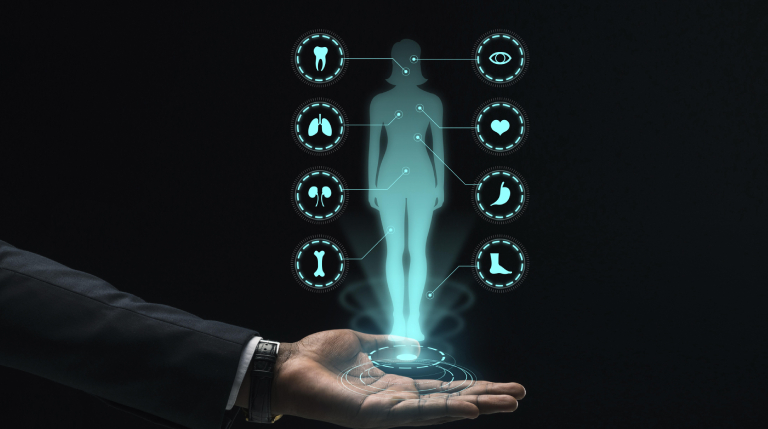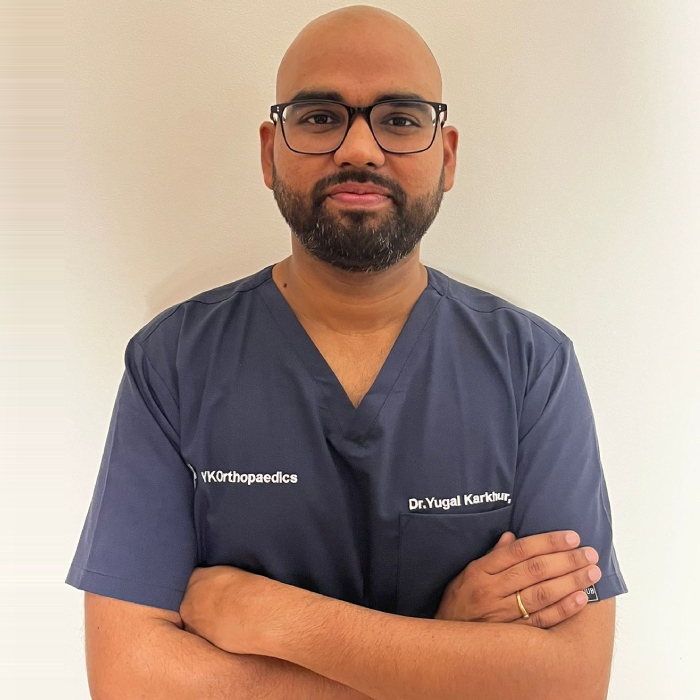Synopsis
Technology is revolutionizing ACL surgery, enhancing both surgical precision and recovery processes. This blog will explore the cutting-edge tools and techniques that Dr. Yugal Karkhur employs to optimize ACL surgery outcomes. From 3D imaging and robotic-assisted surgery to post-operative recovery apps and wearable devices, discover how these technologies make ACL surgeries safer and more effective and ensure quicker recoveries. Dr. Karkhur’s integration of these technological advancements into his practice reflects his commitment to providing the highest standard of care and his dedication to achieving the best outcomes for his patients.
Table of Contents
- Introduction to Technological Advancements in ACL Surgery
- Key Surgical Technologies and Their Benefits
Introduction to Technological Advancements in ACL Surgery
ACL surgery has seen significant technological advancements in recent years, transforming traditional surgical methods and post-operative care. Dr. Yugal Karkhur is at the forefront of adopting these innovations, which enable more precise surgeries and enhanced recovery protocols. These technologies improve surgical accuracy and minimize trauma, leading to faster patient recovery and better long-term outcomes.
Key Surgical Technologies and Their Benefits
One of the most impactful technologies in ACL surgery is 3D imaging, which allows surgeons like Dr. Karkhur to visualize the patient’s knee in three dimensions. This detailed view aids in planning the surgery with unprecedented precision, ensuring that the graft placement matches perfectly with the individual’s anatomy.
Another revolutionary technology is robotic-assisted surgery, which Dr. Karkhur uses to perform some of the most complex ACL reconstructions. Robots provide steadier precision than human hands, which is crucial when working with small incisions and delicate knee tissues. This precision reduces the risk of error, decreases the likelihood of future revisions, and improves the overall success rate of the surgeries.
Technology-Enhanced Recovery in ACL Surgery
Post-operative care is as important as surgery in ensuring a successful outcome. Dr. Karkhur integrates various technological tools to support recovery, including wearable devices that monitor patient movement and progress during rehabilitation. These devices provide real-time data to help adjust rehabilitation plans promptly and accurately.
Additionally, Dr. Karkhur recommends mobile apps to guide patients through their recovery. These apps offer customized exercise routines, medication reminders, and direct access to physiotherapists or the surgical team, enhancing the quality and effectiveness of post-operative care.
Wearable Devices for ACL Recovery
Wearable technology has become a cornerstone of modern post-operative care, especially in ACL recovery. Dr Yugal Karkhur incorporates wearable devices that track the knee joint’s range of motion, activity levels, and load distribution. These devices provide continuous feedback, crucial for monitoring the healing process and ensuring that patients do not overextend themselves too early in their recovery. This real-time data helps Dr. Karkhur and his team make informed decisions about the pace and progression of each patient’s rehabilitation plan.
Utilizing Apps for Post-Operative Care
Mobile health apps are transforming patient care following ACL surgery. Dr. Karkhur recommends apps that enable patients to track their rehabilitation exercises, receive medication reminders, and record pain levels and other recovery metrics. These apps often include video tutorials on proper exercise techniques, which help patients perform their rehab correctly and safely at home. By integrating these digital tools, Dr. Karkhur extends his support beyond the clinic, providing patients with a toolset that empowers them to participate actively in their recovery.
Dr. Yugal Karkhur’s Approach to Technological Integration
Dr. Karkhur’s approach to integrating technology in ACL surgery and recovery is comprehensive. He adopts these technologies and contributes to their development through ongoing clinical research and feedback. His involvement in the technological evolution of orthopaedics ensures that his practices are based on the most current and effective methods. This commitment to technology enhances patient outcomes, reduces recovery times, and sets new standards in patient care.
Future Trends in ACL Surgery Technology
Looking ahead, the future of ACL surgery will likely see even greater technology integration. Advances such as augmented reality (AR) for surgical navigation and even more sophisticated robotic systems are on the horizon. These technologies enhance the precision of ACL reconstructions further and potentially reduce the invasiveness of the procedures. Dr Karkhur actively engages with the orthopaedic community to explore these new opportunities and assess their potential benefits for his patients.
Dr. Karkhur is also optimistic about the role of artificial intelligence (AI) in predicting recovery outcomes and personalizing rehabilitation programs based on big data analytics. This could lead to highly tailored treatment plans that adjust to the patient’s real-time progress, potentially revolutionizing post-operative care management.
Conclusion
Under the expert care of Dr. Yugal Karkhur, patients undergoing ACL surgery benefit from a blend of advanced surgical techniques and cutting-edge technology. His proactive approach not only addresses the immediate needs of ACL repair but also focuses on ensuring a robust and speedy recovery through innovative technology. For patients, this means not just a return to function but an enhanced quality of life with reduced risks of re-injury. Dr Karkhur’s commitment to embracing and advancing technological solutions in orthopaedics exemplifies his dedication to excellence in patient care and his vision for the future of ACL treatments.


